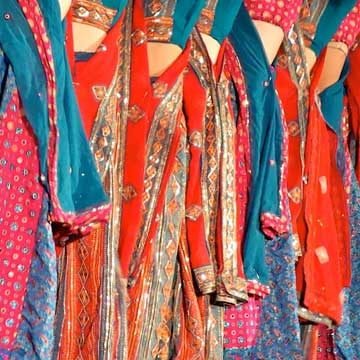 Mumbai:
Mumbai: Sections of the Indian film and television which did business through banking channels remained largely on track after the November 8, 2016, demonetization. But Bollywood's daily wagers -- spot boys, light men, casual actors and other temps -- continue to face its after-effects, say industry experts.
"Initially, our members faced a dearth of work, but that has settled down with time. It is those people who used to get daily conveyance of Rs 100 who are still facing issues," Gangeshwarlal Shrivastava, General Secretary, Film Studio Setting and Allied Mazdoor Union.
Instead of daily getting Rs 100 directly from the production team for conveyance, the workers are now paid collectively for around 15 days -- which has affected their routine. "This is one aspect on which we have not been able to put pressure on producers because it doesn't make sense to transfer 100 rupees every day," said Shrivastava, on behalf of the 500 members of the organisation.
Ashoke Pandit, Vice President, Indian Motion Pictures Producers' Association, said demonetisation was no demon to the film industry as it largely deals in cheques and digital transactions, instead of cash.
"The daily wages in many cases, were turned into weekly or half-monthly payments and were being done in cheques by many producers since corporatisation happened. Use of cash was negligible in film productions, perhaps only for 'chai-naashta'... It's not what the industry used to be 10 to 15 years ago," Pandit contended.
Initially, demonetisation had spelt hard luck for Bollywood as movie buffs were reluctant to visit theatres -- and were instead increasing 'footfalls' at queues outside banks.
Farhan Akhtar's 'Rock On 2' failed despite the buzz around it, and the actor's father had admitted that the film's business "was obviously affected by demonetization" after it was released just days after the decision was taken.
Some single screen theatres also shut down nationwide after the Rs 500 and Rs 1,000 notes were scrapped.
Gaurav Verma, Chief Revenue Officer of superstar Shah Rukh Khan's Red Chillies Entertainment, said not all releases at that time bombed.
"The demonetization announcement may have affected a few films, but we released 'Dear Zindagi' a few weeks after demonetization and the film did well at the box office. And let's not forget that just about eight weeks later, 'Dangal' came (on December 23) and became one of the biggest hits of all times," Verma said.
The move gave a push to a much-needed culture of digital transactions in the film industry, especially from the consumers' perspective, he said.
"The number of digital transactions for ticket bookings jumped to 50 to 60 per cent after demonetisation, and it turned easier for consumers to book tickets. Also, more digital transactions meant less manpower pressure, leading to a certain ease in business," he said, adding that it was a positive step that the industry was marching towards becoming a more organised digital sector.
The immediate response of a host of film celebrities on demonetisation was that it was important to support what was "good for the nation" rather than seeing its short-term impact on films.
Minister of Information and Broadcasting Rajyavardhan Singh Rathore had last year said black money was not being used in films as it used to be earlier. He was confident that, with demonetisation, there would be more transparency in film funding, and as a result, good cinema would get a boost.
Television industry veteran J.D. Majethia says the TV world welcomed the demonetisation move. "Initially, like the whole nation faced an issue, even we faced it. But when it came to our payments, there was no problem as such, because in our production house, every employee, including the spot boy, is paid by cheque. Therefore, we did not face any major problem."
Did any cost-cutting happen due to demonetization?
"In television, finishing an episode shoot on time is one of the most important factors. Therefore, when it comes to unit members, we hire as per requirement. Cutting down on spot boys or lightmen does not bring a huge change in the budget if you have a huge set. But not finishing your shoot on time will surely affect the budget; so cost-cutting on unit members did not happen," he said.
 Mumbai: Sections of the Indian film and television which did business through banking channels remained largely on track after the November 8, 2016, demonetization. But Bollywood's daily wagers -- spot boys, light men, casual actors and other temps -- continue to face its after-effects, say industry experts.
Mumbai: Sections of the Indian film and television which did business through banking channels remained largely on track after the November 8, 2016, demonetization. But Bollywood's daily wagers -- spot boys, light men, casual actors and other temps -- continue to face its after-effects, say industry experts.